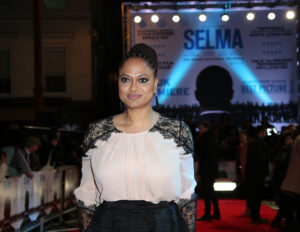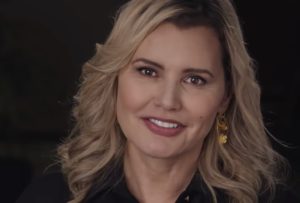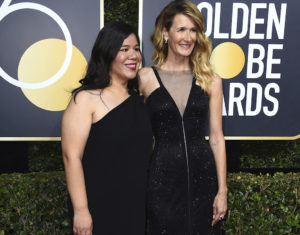Hollywood’s Closet Still Closed for Business
Gus Van Sant's "Milk" is the first major Hollywood "gay themed" film since “Brokeback Mountain,” and moreover (unlike “Brokeback”), this one is about openly gay activists, not tortured closet cases. Yet, once again, the lead gay roles couldn't be filled by openly gay actors. What's going on here?
On Nov. 27, 1978, Harvey Milk, the first openly gay member of San Francisco’s Board of Supervisors, was assassinated. Thirty years later, on Nov. 26, 2008, the film “Milk” will open, directed by Gus Van Sant and starring Sean Penn as Harvey Milk.
Besides marking a historic anniversary, this opening concludes a decades-long effort to bring the story of Harvey Milk’s life and death to the Hollywood screen (a documentary, “The Times of Harvey Milk,” was made, and won an Oscar in 1985). As they launched the project that led to the making of “Milk,” after many prior attempts by many writers and directors had failed, Van Sant and writer Dustin Lance Black hoped to achieve another cinematic milestone by casting openly gay actors as the gay and lesbian people in the forefront of the story, especially in the key role of Harvey Milk. In this they did not succeed, and this tells us something important about the position of gay people in Hollywood today.
Being openly gay behind the camera is no longer a problem, and some have claimed that it’s even a plus in many instances. In the case of “Milk,” besides Van Sant and Black, there were numerous gay folk behind the camera, and some gay cast members, such as prominent New York theater actor Stephen Spinella. But the lead gay roles of Milk, his lovers Scott Smith and Jack Lira, his aides Cleve Jones and Ann Kronenberg, are all played by straight actors.
What’s going on here? The first major Hollywood “gay themed” film since “Brokeback Mountain,” and moreover (unlike “Brokeback”), this one is about openly gay activists, not tortured closet cases. Yet, once again, the lead gay roles couldn’t be filled by openly gay actors. To their credit, Van Sant and Black refused to cast closeted gay actors in these roles, although more than a few signaled their interest. But the simple reality is that there is not a supply of openly gay actors acceptable to the producers of a big-budget film. So the question is, why is Hollywood’s closet door still locked so tight?
The answers are both complicated and simple. Let’s start with the simple ones.
First, there are more openly gay performers than in the past, and many of them are doing just fine, thank you. But always with qualifications.
Ellen DeGeneres may be Hollywood’s most prominent lesbian these days but, like her East Coast counterpart Rosie O’Donnell, Ellen is a misleading example, because acting was never her strong suit. Ellen was always most appealing as a version of herself, a spontaneously funny person, but when she came out on her eponymous TV show, the ratings tanked after the excitement subsided. Her current success as a talk show host depends on her personality and her willingness to keep her sexuality tacitly unspoken. There has been a recent exception to this, when she spoke about her marriage to Portia de Rossi, and her opposition to Prop. 8, which recently outlawed same-sex marriage in California.
Similarly, Melissa Etheridge, Hollywood’s other leading lesbian, is a singer who never played to the male audience’s romantic fantasies.
Portia de Rossi’s most recent role, after her relationship with DeGeneres became public, is as a lesbian on cable station FX’s “Nip/Tuck.”
Of course, any discussion of Hollywood’s lesbians must contend with Jody Foster, who remained resolutely confined in her glass closet until December 2007, when, accepting an award at a Women in Entertainment breakfast, she broke her taboo to thank “my beautiful Cydney, who sticks with me through all the rotten and the bliss,” thus for the first time publicly acknowledging — if still in somewhat coded words — the woman she lived with for 14 years. Six months later, Foster dumped Cydney Bernard for another woman, screenwriter Cindy Mort — perhaps she got tired of the pretentious spelling. But Foster is 45, well into Hollywood’s Bermuda Triangle — that mysterious territory into which actresses disappear once they are no longer “young” and from which they may later emerge as “older women” who are no longer cast in leading romantic roles.
On the male side, things are not much different. There are some openly gay actors in Hollywood, but none that challenge the primacy of the closet. In movies, there are the British queers, Ian McKellen, who is not the leading-man type, and Rupert Everett, who thinks he should be. As Everett told The Times of London, he “believes that his sexuality has cost him ‘tons’ of leading roles” during his career. In his acclaimed and frequently outspoken autobiography “Red Carpets and Other Banana Skins,” he claims that the head of MGM once vetoed his casting as the male lead opposite Sharon Stone in a film, saying that for “all intents and purposes, a homosexual was a pervert in the eyes of America and the world would never accept me in the role and therefore MGM would never hire me.” (Hoyle, 2007).
This puts the matter clearly in focus: Will American, and world, audiences accept openly gay actors in leading roles? In the Hollywood lexicon, A-list leading actors generally mean action and/or romantic roles, and being accepted by audiences means being credible as an action hero and a (heterosexual) lover. In the minds of studio executives, we’re told, known queers don’t qualify for either or both of these essential attributes, and so, no dice. But surely things are different these days? Yes and no.Anyone who follows Hollywood and media gossip is probably thinking, what about Neil Patrick Harris (star of CBS’s sitcom “How I Met Your Mother,” on which he plays a very heterosexual character), T.R. Knight (on ABC TV’s “Grey’s Anatomy”), and Lindsay Lohan (film and TV actor, singer and tabloid magnet)? Well, they don’t really challenge the argument that Hollywood won’t accept an openly gay A-list star. Harris is a long-time successful actor, who first became a star as a teenager playing “Doogie Howser, M.D.,” and while he has worked steadily, it would be fair to say that he’s not on anyone’s A-list. T.R. Knight is well on his way to a similarly solid mid-level career. It remains to be seen whether Lohan, who recently made a happier sort of tabloid splash when she went public about her relationship with DJ Samantha Ronson, can regain her footing on the ladder to stardom.
There are, of course, also the singers Lance Bass and Clay Aiken, but here, too, no pattern has been shattered. Bass came out long after the demise of the band ‘N Sync, and after his post-band career had sputtered along without igniting. It’s fair to say that his coming-out cover of People magazine was his most successful media appearance in several years. Aiken, who followed Bass with a People magazine coming-out cover, surprised no one, except possibly his “Claymates” — who, following in the tradition of Liberace’s legions of adoring fans, managed to miss the obvious. Aiken’s coming out evoked less praise, in part because (unlike Harris, Knight, and Bass) he had previously denied being gay, going so far as to say that a video on a gay dating site wasn’t him — it was just somebody who looked exactly like him.
So, what’s behind Hollywood’s reluctance to move with the times and admit openly gay actors to the center ring of the Big Top? Quite simply, there’s too much at stake and this is a risk-aversive business — as well it might be, given the amounts of money involved.
Let’s start with the basics. Hollywood has long known that stars, not stories, sell movies. There are exceptions, of course, but they are just that, exceptions. This is particularly true nowadays when movies stand or fall by their opening weekend grosses, and thus the obsessive concern with stars who can, as they say, “open a movie” and open it big. This is one reason why Will Smith, an African-American, is considered by many the biggest star in the world: his record in “opening movies” at No. 1 on big summer holiday weekends.
A little time with Google will reveal how central this question is in showbiz chatter: “Can he (or occasionally she) open a movie?” But beyond opening movies, there is the larger question of whether an actor will perform the key function of attracting the right audiences — these days mostly young and predominantly male (because the women will come along with the men, but rarely vice versa). The same goes for television shows, more or less, where the “young demographic” is endlessly sought after by advertisers.
So, if stars sell movies and TV shows, casting is crucial to financing, making and marketing product, and actors are key properties in this system. Actors are chosen from among the pool of aspiring auditioners that constitutes a reserve army of the un-cast who are always eagerly available. Thus, despite the myths of talent and destiny, however real those are, there are always many more applicants than roles; and agents, managers and casting directors have the luxury of passing over potential trouble by making another choice. At least at the start, if not long afterward, the power is in the hands of the system, not the young actor trying to break into the magic circle of those employed in acting (as opposed to waiting tables).
An actor has to have an agent in order to get anywhere, but an agent rarely has to sign any particular actor. Once an agent takes on an actor, they are making an investment, one which might pay off very well indeed for the actor and for the agent, who gets a percentage of the actor’s income. Thus, an agent has an interest in developing and protecting the property in question — the actor’s career — and a likely aversion to anything that might endanger that investment. Like being openly gay in the case of any actor remotely credible for action and/or romantic lead roles. Even Neil Patrick Harris, whose character in “How I Met Your Mother” is a womanizer, was already in the show when he was outed and then came out. It’s far from assured that he would have been cast in the role had he already been out.
Casting, in the words of longtime Hollywood publicist and gay activist Howard Bragman, is all about red flags: He’s too old, too young, too thin, too fat, too anything. You don’t even have to say he’s too gay. As casting director Bonnie Zane put it, “No one would come out and say it, because everyone here is politically correct. There are other ways to put the kibosh on (hiring).” (Ventre, 2008).
So it only makes sense from the perspective of the system: the agent and manager, the casting director and the producer, the studio, and even, it must be said, the actor, to remain in the closet and protect one’s viability as a potential action/romantic lead. An analogy here might be the advice often given by real estate agents to homeowners hoping to sell: it’s always better to paint your house beige and reduce the risk that someone might not like the color.
But the bargain is becoming harder to enforce than it was in the old days. When Confidential magazine was launched back in 1952, revealing that an actor was gay could mean the end of a career.
Famously, Rock Hudson’s agent, Hank Willson, who specialized in discovering and “creating” young male movie stars — besides Hudson he was behind the careers, and made-up names, of Tab Hunter and Troy Donahue — made a deal with Confidential to prevent an exposé of Hudson’s gay sex life. The story is that he traded the revelation of Rory Calhoun’s jail term as a teenage car thief. As it turned out, Calhoun’s career survived, as juvenile delinquency didn’t hurt his tough-guy reputation any more than had the earlier revelation of Robert Mitchum’s pot bust. Willson later was rumored to have given Confidential the story of Tab Hunter’s arrest at a gay “pajama party” after Hunter fired him as his agent. (Hofler, 2005, pp. 248-9).
Confidential was published monthly, occasioning a periodic shiver of apprehension among Hollywood’s closeted fraternity. Hudson’s friend and fellow actor George Nader recalled, “We lived in fear of an exposé, or even one small remark, a veiled suggestion that someone was homosexual. Such a remark would have caused an earthquake at the studio. Every month, when Confidential came out, our stomachs began to turn. Which of us would be it?” (Hofler, p. 244).
Actors today don’t have the comfort of knowing when something might be published, as the 24/7 news cycle and, above all, the Internet, know no downtime between issues. At any moment, the paparazzi might catch one in an unguarded moment and a closet-busting picture might be flashed around the world in seconds. How can they keep young actors back in the closet after they’ve seen Perez Hilton?
Despite their apparent and sometimes real antagonism, the celebrity media and the celebrities are symbiotic systems. The media routinely violate a cardinal principle of journalism by printing stories they know to be false — part of the price they readily pay for access to the stars their readers want to read about. But today, in the age of blogs and YouTube, the détente and even collaboration between the producers/agents/talent supply side and the demand side of celebrity gossip newspaper columns and magazines has broken down.
At the same time, the younger actors now filling the audition rooms and making up the pool of future minor and major players represent a generation that has grown up in a world populated with openly gay people. An actor in his or her early 20s would have seen stories about gay people on the news all their life, would have known openly gay schoolmates in high school and college, perhaps even been one of them.
Unlike their counterparts in earlier decades, when everyone was in the closet and coming out publicly was as rare as it was dangerous to one’s livelihood, many young actors have generally been openly gay since their teens, at least in their private lives, and they have become accustomed to the benefits of being able to live an open life in a gay-friendly social world.
For these aspirants to a show business career, the choice is not whether to come out, but whether to go back into the closet, or at least move into the sort of “glass closet” that the press used to respect. And it’s not only actors, but anyone in the media spotlight. Ask Anderson Cooper.
The Off-Broadway play, “The Little Dog Laughed,” tells the story of a young actor whose career is taking off. His agent, a lesbian, is pushing him to pursue his career by ditching his boyfriend and playing straight. In the end, that’s what the young actor does, choosing the life of a closeted, bearded movie star.
When the play was produced this winter in Hartford, Conn., the actor was played by Chad Allen, one of the few openly gay actors in Hollywood, who told the gay Web site AfterElton.com, “I think it’s entirely likely that any of us, myself included, could wind up so embedded in the Hollywood machine that it would be impossible to be true to yourself. I’ve seen it happen over and over again — not just with sexuality, but with drugs or the whole cult of personality that’s created around a star. It’s scary, but I get it, because I wasn’t that far from losing myself to it at one time … . It can be so hard to find that voice and step away from what the world tells you is your role, especially if you couple that with lots of money and fame. For me, personally, there was never a question. There was a time when it was actually said to me, ‘You know, we can get you a girlfriend. We can make that happen.’ But that’s not in me. I can’t live a lie.”
The interviewer asked Allen, “Does it surprise you that, in this day and age, many gay actors still profess to be straight and do whatever is necessary to make the public think they are?” Allen replied, “Does it surprise me? Not really. I don’t know how many people still do the beard thing; if they’re doing that, they’re not talking to me about it! Obviously, there’s still the perception that you can’t be a leading man in the movies if you’re gay. You can’t be Tom Cruise and be openly gay.” Of course, you can be an open Scientologist. But is this still true for audiences as well as hyper-cautious studio executives? Could we be in a historical moment when the system — studios, agents, actors — are worried about an audience reaction that is no longer real? After all, just as actors have grown up in a world that includes gay folk, so have audiences. MTV’s “The Real World,” the pioneering reality show, has from its inception in 1992 included gay members in its collections of youngsters living together in various locations, and the genre of reality programming that has followed maintains this as a pretty standard attribute.
In a recent interview, after he came out publicly, Neil Patrick Harris spoke of the impact on him of seeing Danny Roberts, the gay cast member of “The Real World-New Orleans,” which aired in 2000 (Harris was 27 at the time!): “Danny Roberts was on a reality show, so I was watching him exist in his world and … what was empowering was to see him interacting socially and admiring the way he behaved in any given situation.”
In fact, for younger audiences, the presence of gay people is part of the recipe for establishing the verisimilitude of reality TV. This is important for the growing stream of cable-based reality shows, many highly successful, like “Project Runway” and “America’s Next Top Model,” which are almost as gay as the trend-setting “Queer Eye for the Straight Guy.” The king of this reality mountain, “American Idol,” has not exactly been welcoming to the possibility of openly gay stars, as Clay Aiken well knew, and as this year’s quickly dropped openly gay contestant, Danny Noriega, discovered.
But reality programming is not the basis for big-budget movie making. Would the coveted young audiences flock to the opening weekend of the next installment of blockbuster franchises like “Mission Impossible,” the “Bourne” series, Spiderman, James Bond or Batman if they knew the lead actor was gay? Would teenage girls still make “High School Musical” a megahit if they knew the romance between Zac Efron and Vanessa Hudgens was limited to the screen? There’s no way to tell for sure, as no one is about to put the question to the test, but it seems safe to assume that the studios are not being paranoid here.
After all, think about this: If two straight young men go to the movies together, how do they sit? Time’s up. The answer is that they will almost always, if possible, leave an empty seat between them.
Ultimately, what it will take to cut through this Gordian knot is for someone credible for A-list roles breaking the rules and coming out – and succeeding. A Jackie Robinson moment – in part because this will also require a Branch Rickey in order to make it happen. There are a number of potential players who might be cast in this epochal role, some of whom have already begun to climb the ladder while remaining in their glass closets.
CNN news anchor Anderson Cooper could play this role, although not an actor, because of his visibility and charisma. Lindsay Lohan is already moving into this uncharted territory, but her rocky road through rehab and paparazzi ambushes puts her in a different category from the start. Or it could be an openly gay actor drawn from the more relaxed world of Broadway (home to such successful openly gay stars as Nathan Lane and Harvey Fierstein, neither in any danger of being cast in an action or romantic lead).
A credible candidate for the role is Cheyenne Jackson, an up-and-coming Broadway actor-singer who most recently starred in a revival of “Damn Yankees” (along with the unconvincingly closeted Sean Hayes, lately Jack on TV’s “Will & Grace”). Jackson is openly gay and he recognizes that this may have cost him roles. As he told the Advocate last April, his agents aren’t necessarily happy with his choice to be open: “They just don’t want me to be pigeonholed, because they want me to have as many opportunities as I can … . To be frank, I think I’ve missed out on some parts because I’m open.” (Voss, 2008, 36).
If not Jackson, there are others. And there will be more all the time because, as Margo Channing learned, the youngsters keep on coming, and increasingly they’re coming along already out of the closet.
After he was elected to San Francisco’s Board of Supervisors, Harvey Milk recorded an audio testament, to be played after his death — little knowing how soon his fear of assassination would become a reality. In that tape, Milk proclaimed, “If a bullet should enter my brain, let that bullet destroy every closet door.”
If we’re lucky, Milk’s example will become an inspiration to the new generation of queer activists that has taken to the streets in protest of the passage of Proposition 8, and further his dream of destroying every closet.
Your support matters…Independent journalism is under threat and overshadowed by heavily funded mainstream media.
You can help level the playing field. Become a member.
Your tax-deductible contribution keeps us digging beneath the headlines to give you thought-provoking, investigative reporting and analysis that unearths what's really happening- without compromise.
Give today to support our courageous, independent journalists.






You need to be a supporter to comment.
There are currently no responses to this article.
Be the first to respond.